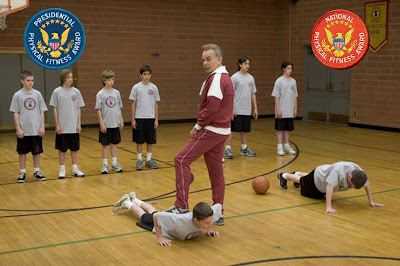Hey, ass-hat with the abstract link. Yeah. You.
[Edit: More than a few readers gave me feedback about my use of a derivative of the r-word, which has gone from a medical term still used in medical journals to a pejorative one when used in a derisive context. A small portion of my patients are developmentally delayed and understanding the power of language (being more than moderately opposed to, “That’s so gay,” referring to anything more offensive than a bus of drag-nuns–which really isn’t offensive at all since the Sisters are AWESOME (honestly, I’ve been to their parties); so I guess”gay”=”awesome”), I’ve replaced it with “Ass-hat”. I have Googled its etymology and can find no reason not to use it. Now, onto the post.]
The rate at which psuedo-information flies around has now reached epic proportions. And not in a good way. Read More...
The lime in the coconut is purely optional.
 Before I even start explaining what I’ve done here, I want to make it absolutely clear that this analysis is fairly casual, and that by no means have I followed a text-book rigourous protocol to do it because if I HAD done that, you wouldn’t be reading this for another year while it waited in the publication queue of some nutrition journal. However, I will say that even with that disclaimer, I’ve probably been a bit more rigourous than a lot of crap I’ve read, so…well, there really isn’t anything more to say, is there?
Before I even start explaining what I’ve done here, I want to make it absolutely clear that this analysis is fairly casual, and that by no means have I followed a text-book rigourous protocol to do it because if I HAD done that, you wouldn’t be reading this for another year while it waited in the publication queue of some nutrition journal. However, I will say that even with that disclaimer, I’ve probably been a bit more rigourous than a lot of crap I’ve read, so…well, there really isn’t anything more to say, is there?
Back in the early 2000’s there was a small surge of medium-chain-triglyercide (MCT) research that petered out around 2003ish. While there were a fair number of human trials looking at MCT’s and lipid profiles, there were also a handful of trials that also examined the effect of MCTs on body composition, specifically fat loss. And while MCTs are used in some supplements and meal-replacement shakes, there hasn’t been a widespread adoption of MCTs like there was when olive oil got really big (also in the early 2000’s), and I have to say that it’s not entirely clear as to why. Part of the reason might have been the sparseness of human trials involving MCTs compared to those looking at olive oil. Since 2009, however, there appears to be another blip of human trials looking at MCTs, and specifically at coconut oil, or mixes that involve a fair amount of coconut oil. Read More...
Bias doesn’t always work against you (or why gym class might not be all it’s cracked up to be)

This blog entry’s study comes from my friend Brad Pilon, who said, and-I-quote, “I wanna get you back to dissecting papers on your blog,” which jolted me into realizing I haven’t in a long time.
One idea that Brad and I have been talking about (apart from trying to stick to manipulating factors that make LARGE contributions to progress) has been the notion that diet and exercise, though both important for “health” and “fitness”, may have little contributions towards their counterpart body components. Diet seems to have the greatest impact on body fat, while exercise (and more specifically, resistance exercise) seems to have a greater impact on lean body mass. While one CAN use exercise to assist in losing body fat, I think there is probably some truth in the saying, “You can’t out-train a bad diet,” and similarly, I would argue that at most levels, you probably can’t eat yourself more muscles, otherwise, there would an epidemic of Ah-nolds in America, not obese people. Read More...
Burn the boats: Why you’re going to fail. Or not.
 I’ve been studying and reading health research for decades, and this post is just a bit of my biased gestalt on the state of affairs on obesity, obesity research and the new hope that arises within a TON of people every January.
I’ve been studying and reading health research for decades, and this post is just a bit of my biased gestalt on the state of affairs on obesity, obesity research and the new hope that arises within a TON of people every January.
The preponderance of obesity research indicates that most of you will fail at achieving your goal of weight loss this year; and that of those of you who succeed at achieving the goal within this particular year will ultimately fail because the data generally shows that the weight comes back, resulting in a net effect of zero. What we don’t fully understand still, is why this failure happens; and I’m not sure that we’re going to truly unearth it anytime soon enough to make a difference in your resolution this year. Read More...
Why isn’t overeating an eating disorder?
My position on the proposed “Muscle Dysmorphia” remains unchanged. I do not feel it belongs in the DSM in its current state, largely due to the subjective criteria for its proposed diagnostic criteria, which depends entirely on whether the diagnostician feels the patient is already “muscular enough”. Read More...
Anecdotal Evidence-Based Fitness
At some point in every fitness-writer/blogger’s lifespan, there comes a point where the rubber has to meet the road. We write about fitness and nutrition and body-image, but I’m sure there are many bloggers who can (and I apologize for the use of two cliches in two sentences) talk the talk, but can’t, don’t or won’t walk the walk.
And at some point in every fitness-writer/blogger’s lifespan, there has to be come form of accountability for what he or she writes. A proponent of supplement X should probably be using supplement X and not just writing in favour of it to get paid if they really think it works. A writer who believes in workout A enough to rave about it should probably be able to show that it works at least for themselves. It’s of little value to say, “X totally works and everyone should be using X, but I don’t.” Read More...
HIIT vs Steady State–Who will win??
I’m no “real world” trainer, but if there’s anything that I am, it’s a “real world” researcher. And if there’s anything I can say that I do well, it’s research reviews. This review was a very exciting thing for me to do because this is a trial that has “real world” training implications and hopefully, you will see that not everything is crystal clear in an abstract. It also enabled me to demonstrate a few examples of how alternate analyses can be useful as well as the importance of succinct data reporting. Read More...